
We’re here to help! Wild Yards is a completely free website that is 100% dedicated to helping you create a wildlife-friendly, sustainable yard. Read more
WildYards is reader-supported. When you buy a product through a link on our site, we may earn a comission. Every product is independently selected by our (obsessive) editors and our reviews are unbiased and objective. Read more about our mission or our privacy policy.
Chives are some of the best-loved garden herbs for easy maintenance and delicious harvests! You may not know that they are also fantastic at protecting and stimulating all kinds of plants in your yard. Chives companion plants frequently benefit from fewer pest attacks, for example.
Carrots, tomatoes, fruit trees, and other allium species are among the best companions to grow alongside chives. In some cases, the companionship is mutually beneficial – but be careful, as some plants still react badly to chives growing close by!
Why should I grow chives companion plants?
As a fragrant allium, chives help repel invasive and destructive insect species that eat away at sensitive vegetables and plants in your garden. Their strong fragrance confuses common pests such as carrot flies, for example.
Chives are fantastic for attracting bees, too – meaning they can add extra pollinator magnetism to any herb or flower garden. Once in full bloom, chives sprout purple flowers rich in nectar – very appealing to useful leafcutters, honeybees, and bumblebees!
By reducing pest numbers and increasing pollinator interest, chives can help weaker plants and crops grow stronger more efficiently across the warmer months.
Chives make for ideal natural mulch – they can proliferate to cover open soil beds and help add useful nutrients, helping keep nearby plants well-fed.
Plants, herbs, and crops unlikely to benefit from growing with chives are likely to be stunted by its growing habits and strong fragrance. Though plants that dislike chives are few and far between – most crops will welcome its natural pest-fighting prowess.
The best companion plants for chives
Whether to attract pollinators, deter pests, or help stimulate healthy growth, the following plants benefit from growing alongside chives.
Onion and Garlic
Growing chives with other members of the allium family is a great idea. Planting chives with garlic and onion plants, for example, is relatively easy as they all have similar soil, water, and sunlight demands. You won’t have to worry about any of these plants outgrowing the other.
Chives and other alliums will stimulate each other’s growth, with the former providing a nutrient-boosting mulch in the right plots. They may even help to develop stronger scents and flavors. That’s beneficial when staving off garden pests and when you eventually harvest your crops for the dinner table.
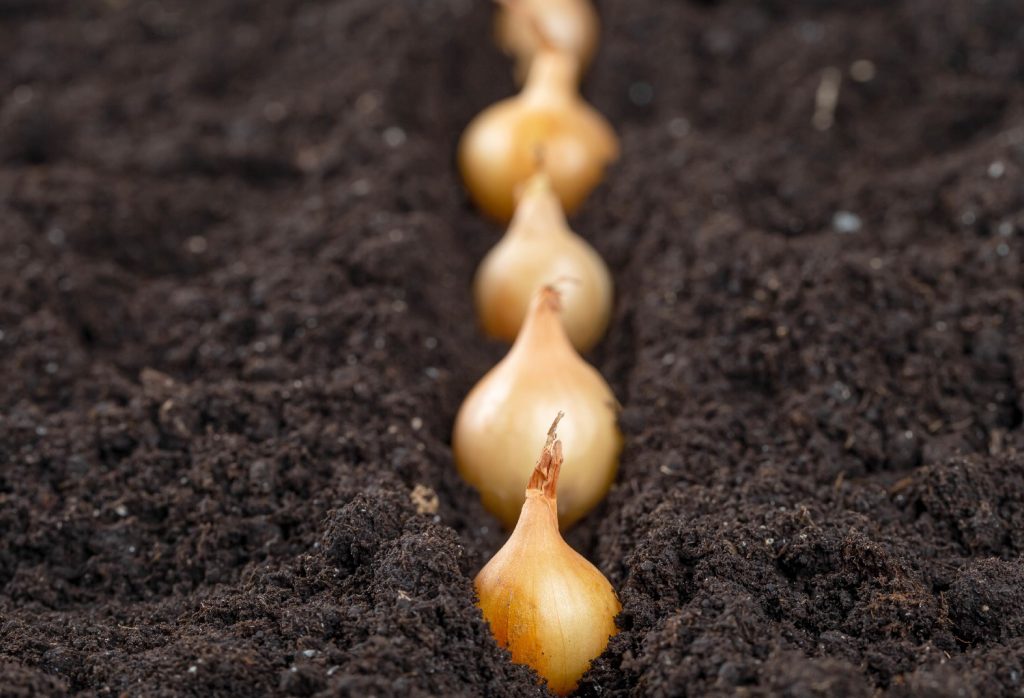
Tomatoes
Tomato plants are at high risk of being eaten by animals large and small, which means they benefit hugely from chives’ protective friendship. Chives can deter aphids for the most part and can help to add nutrients to tomato soil as a thriving mulch.
Tomatoes that grow alongside chives are also likely to grow bigger and in larger quantities. Many tomato gardeners grow alliums such as chives as a natural alternative to pesticides to help bring stronger flavors to their harvests.
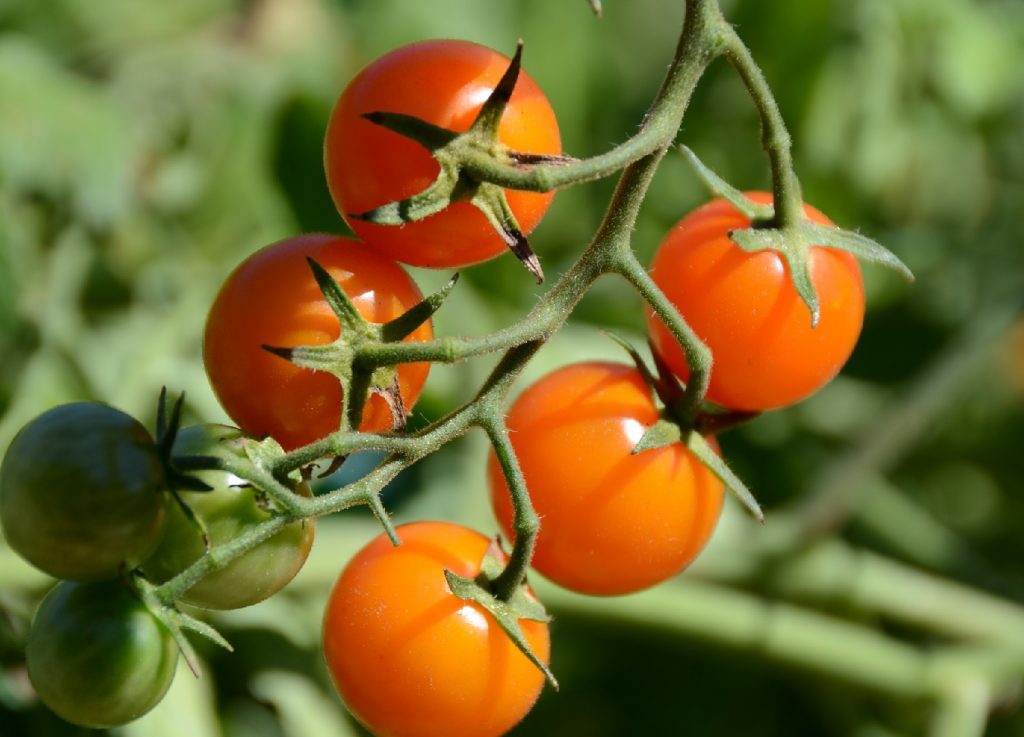
Strawberries
Much in the same vein as tomatoes, chives are great at preventing fruit from aphid and beetle attacks. What’s interesting here is that chives can also protect your strawberries from larger animal visitors – such as deer, which will happily munch away on other juicy crops.
Deer hate strong-smelling plants such as alliums – growing chives around your garden border or as a large enough perimeter around your strawberry plants can help to prevent destructive mammals from getting into your crops.
Chives will help strawberries to grow stronger as they can attract bees and wasps, who will pollinate close by without damaging your fruit.
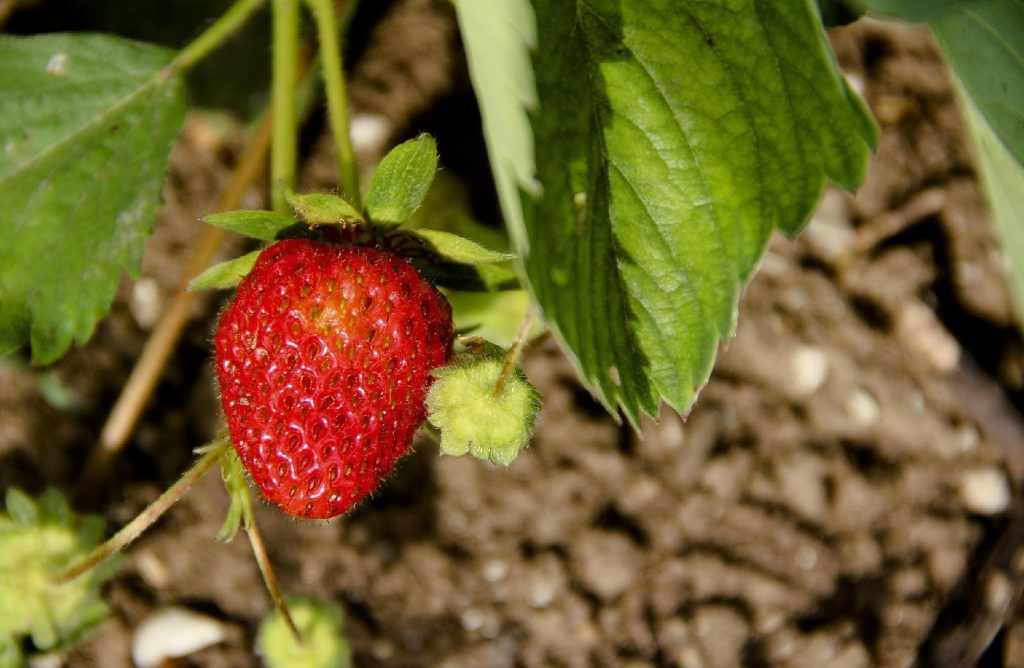
Cucumbers
Growing cucumbers and chives together has a double benefit. You’ll not only help to strengthen your border against cucumber-averse deer, but you’ll also protect your pickles from destructive cucumber beetles.
Conveniently, cucumber and chives flavors will complement each other well, and you can harvest both at a similar time to serve as a salad.
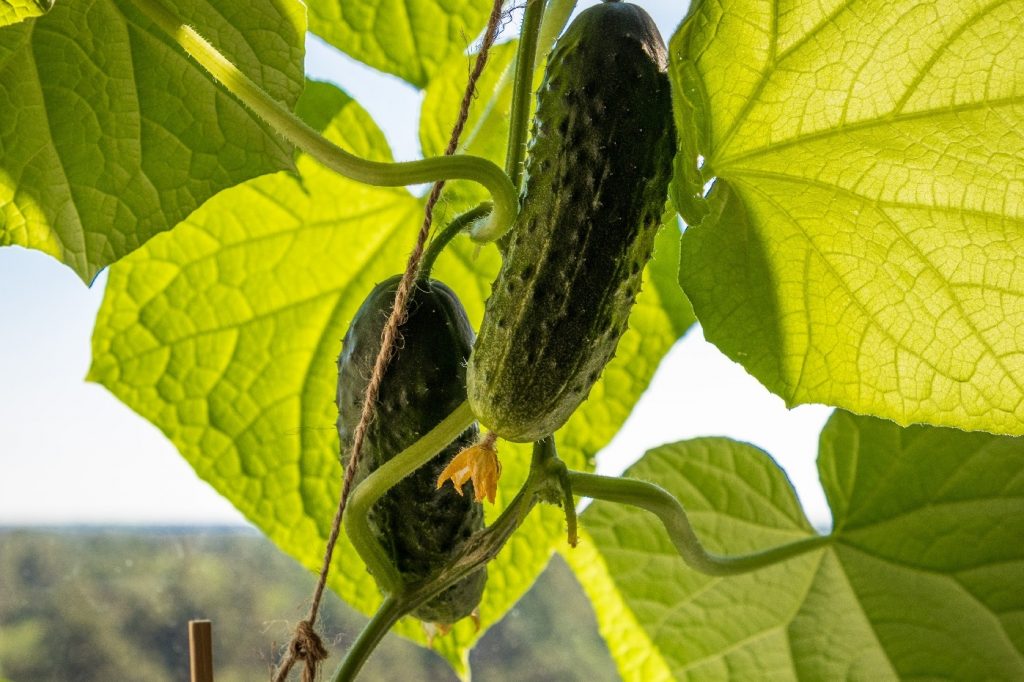
Roses
Roses typically need some help attracting pollinators as seasons wear on, and aromatic chives can help to appeal to wandering bees who might otherwise miss them. Roses are full of nectar, but their complex flower shapes and bold colors may sometimes cause them to go unnoticed.
Planting chives around your roses or as mulch around your rose bushes will encourage bees to take a closer look at your plants and pollinate them long into the summer. Chives are remarkably hardy and resilient, meaning they can help to keep roses’ appeal stronger for longer.
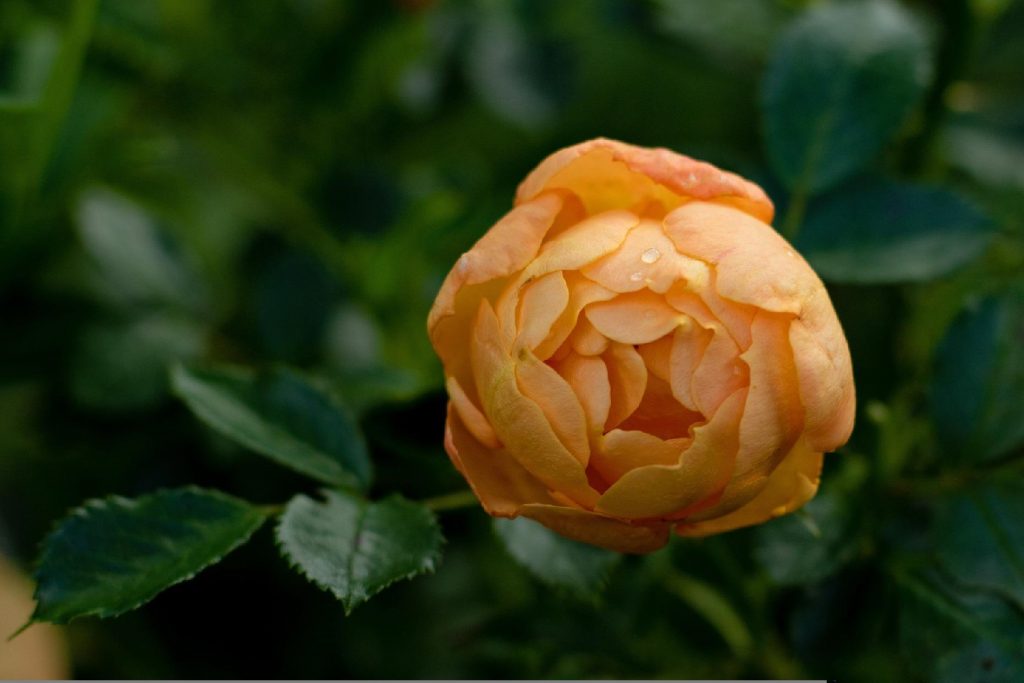
Grapes
Growing chives with grapes means you can expect stronger, larger fruit crops thanks to increased bee visitation. The pungent aroma of your alliums will also keep beetles and aphids away from your grapes, allowing them to persist for longer than you might expect.
The dual benefit of growing grapes with chives arrives at harvest! Chives can potentially complement the flavor of grapes while growing, and out of the ground, they go together well as part of a summer salad.
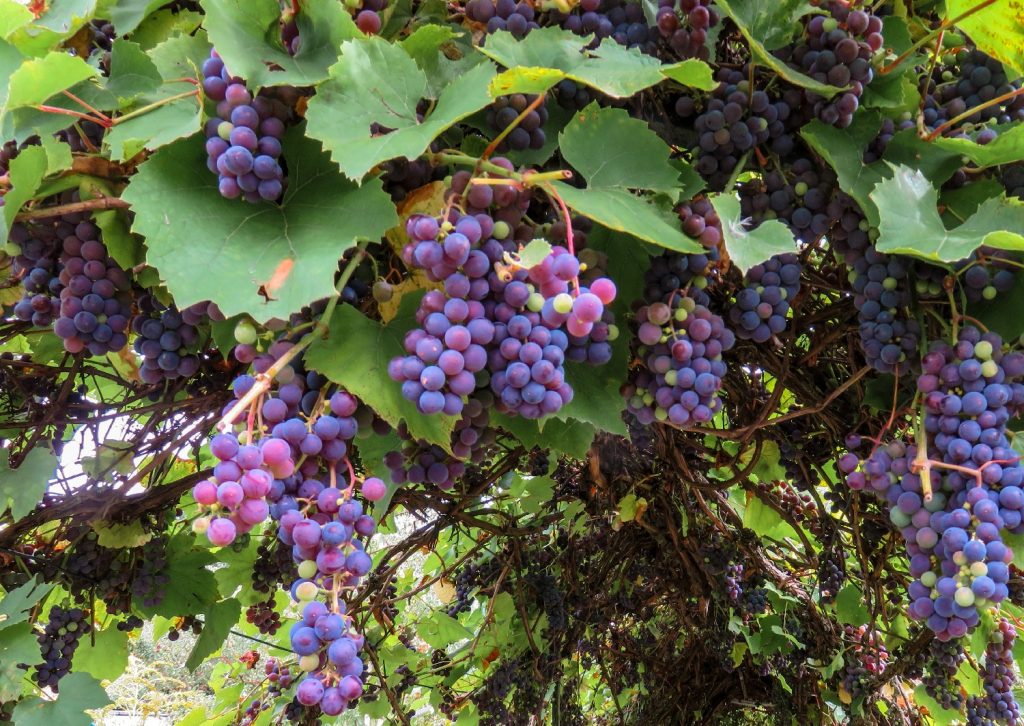
Fruit Trees
Chives can help smaller trees deter hungry visitors such as deer, who will happily munch away on oranges and apples. Chives growing around apple trees can also help to prevent the growth of apple scabs and thus ensure a more robust crop.
To help protect larger trees, it may also be worth planting chives with chamomile, a herb boasting anti-fungal and anti-bacterial properties to stave off disease and rot. It’s worth growing chives alone around peach and apple trees in particular, initially.
Carrots
Carrots are at risk of getting eaten by more than just rabbits, deer, and aphids – they’re also easy prey for the aptly-named carrot or carrot root fly. Thankfully, chives can naturally repel this pest, helping your carrots to grow stronger and produce more crops by the end of the growing season.
What’s more, chives can help to stimulate carrots’ soil to enhance the eventual flavor of your crops. They’re also easy to harvest together and will often make tasty soup or salad.
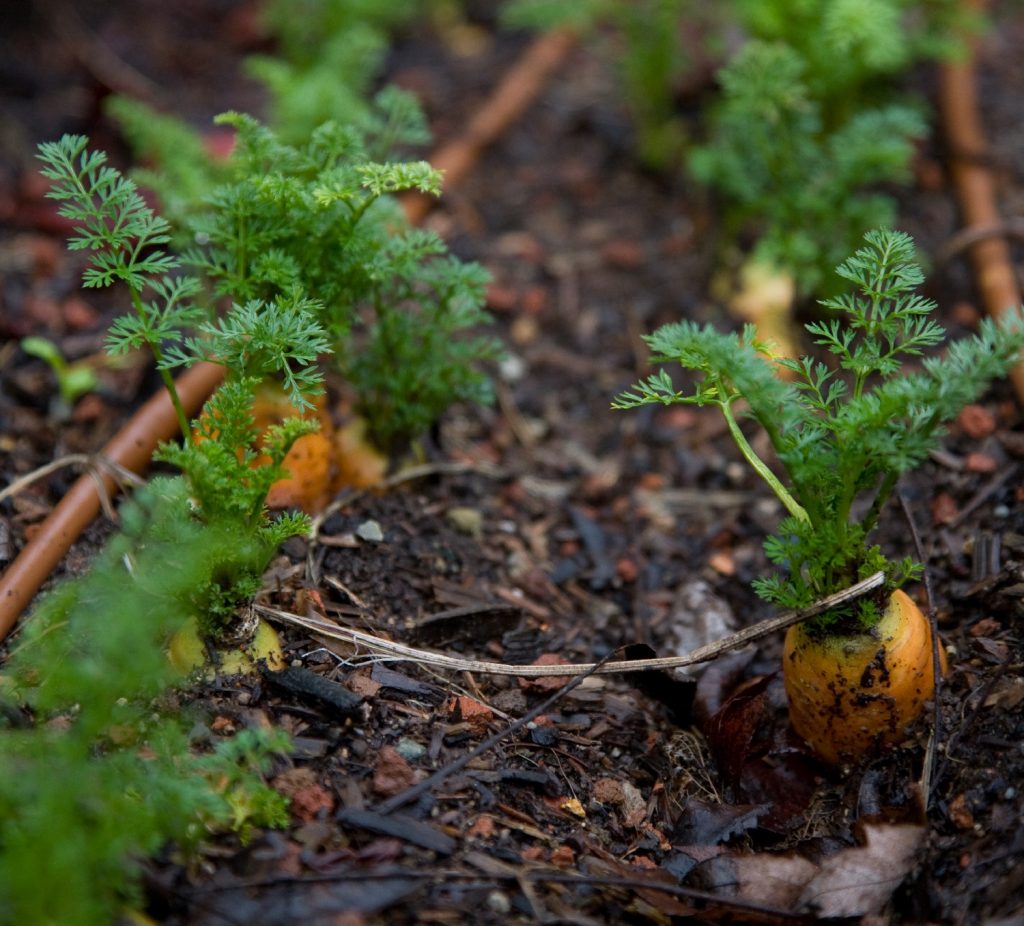
Lettuce
Much like carrots and tomatoes, lettuce is somewhat defenseless against various insects and hungry mammals. Chives are easy to grow amongst lettuce and kale as a mulch, stimulating the soil and fighting back against aphids looking for lunch.
Again, chives will also act as a brilliant barrier against both deer and rabbits, meaning it’s worth setting up a natural perimeter of alliums if you regularly welcome larger pests.
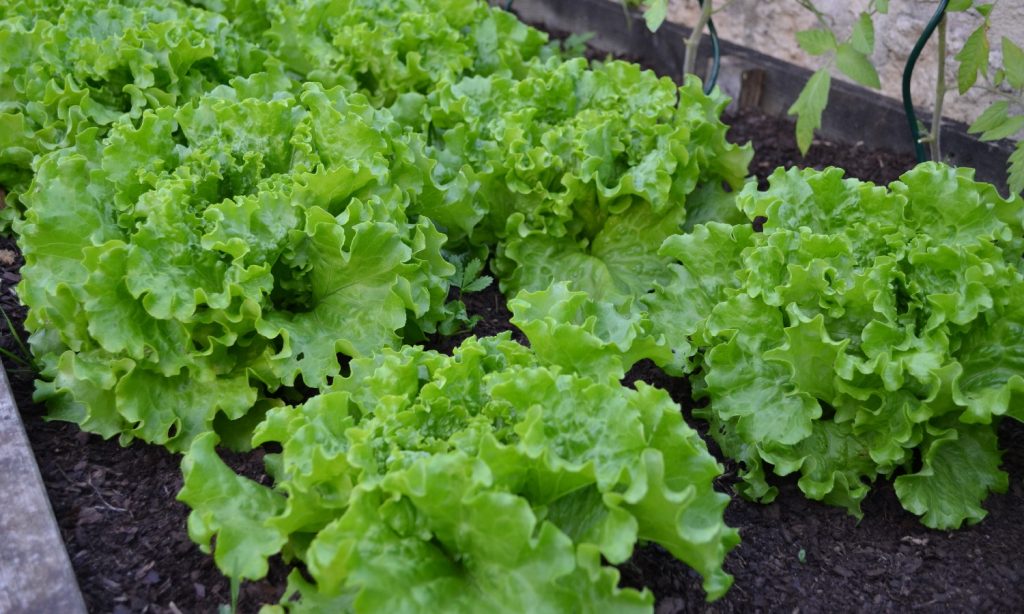
Lavender
Lavender is a laid-back herb that can sometimes struggle to persist alongside more invasive species, but it tends to grow well alongside chives. The dual benefit of growing chives and lavender together is that they will doubly repel rabbits, deer, and a variety of invasive bugs and slugs.
Chives will also help to boost pollinator appeal for lavender that may start dying off in arid conditions or towards the end of their growing cycles. Bees, in particular, will find it easier to spot less hardy lavender when you have a mess of chives growing in between.
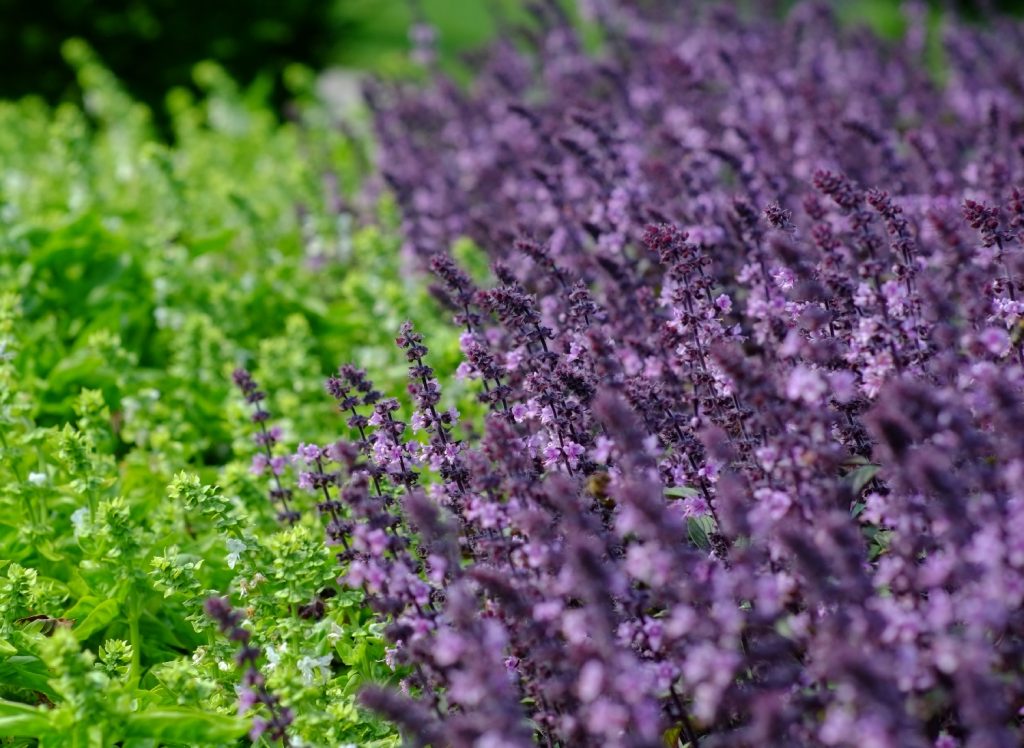
Celery
Celery is another deer favorite, and with the added fragrance of chives, you’re likely to see fewer of these garden visitors munching away at your crops. Intriguingly, there are further benefits to this relationship regarding harvesting – as chives typically bring out a sweeter, juicier taste in celery crops.
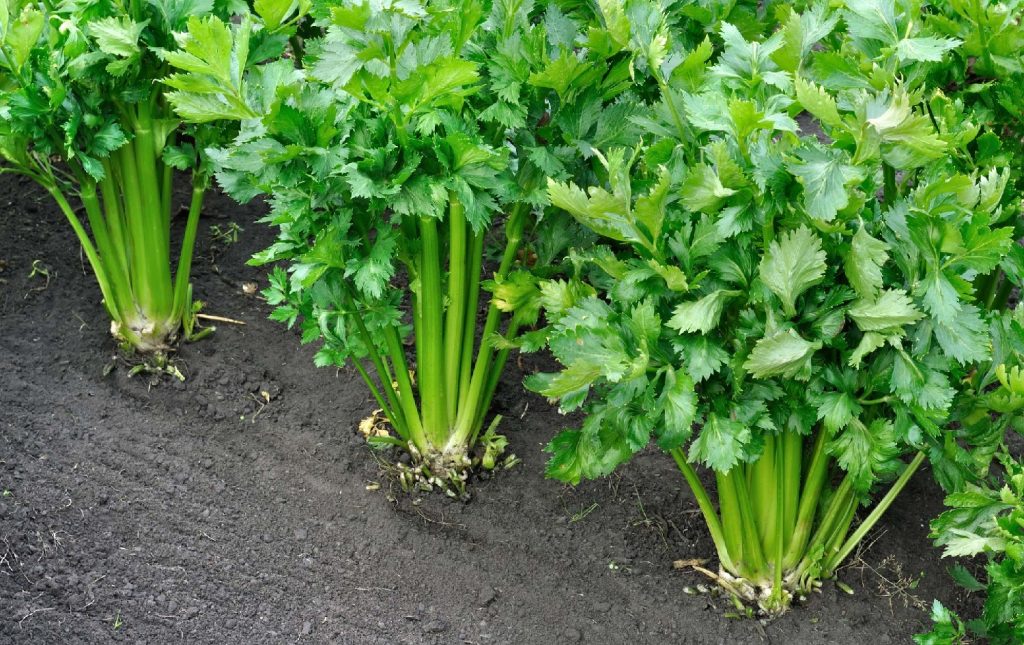
Peppers
Specifically, it’s worth growing chives around hot and bell peppers if you’re struggling with slug attacks. Peppers are particularly susceptible to slug visitation and damage, and you may therefore benefit from growing chives with lavender around your crops for a dual attack.
Peppers growing amongst chives are likely to be stronger, juicier, and harvested in larger quantities thanks to the allium’s protective fragrance.
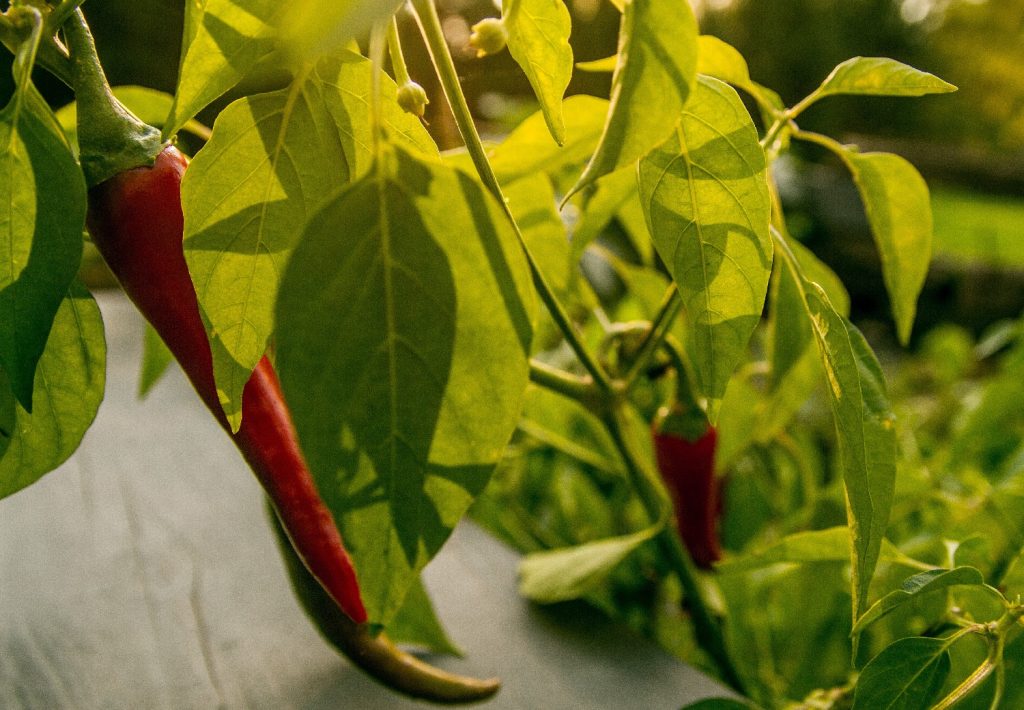
Plants you should avoid growing with chives
While fairly undemanding, some plants struggle to grow well with chives as neighbors – be sure to avoid growing the following as companions.
Beans
While beans and chives are both very easy to grow, they are incompatible to the point where they can stunt each other’s growth. Many varieties of beans and legumes release chemicals into the soil that can hinder the potential of their neighbors.
Additionally, beans struggle to grow to full maturity planted next to onions, garlic, and other members of the allium family.
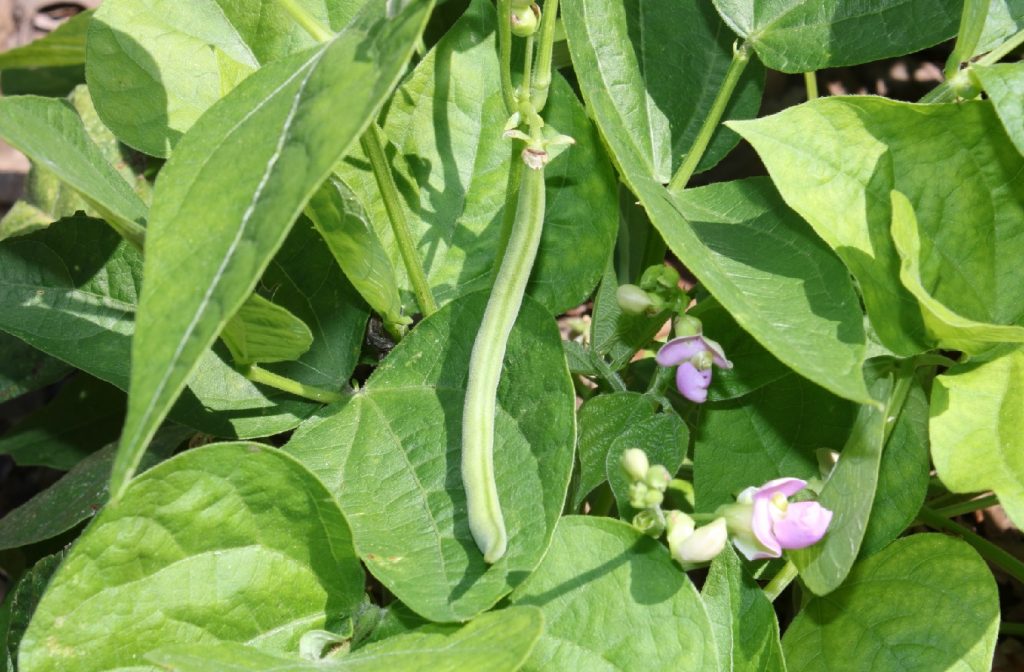
Asparagus
Asparagus is a tender crop that requires a hefty dose of nutrients from the soil, water, and fertilizer to grow healthily across the months. Grown next to nutrient-hungry alliums such as chives, these vegetables will never reach full maturity.
It’s not the hunger of alliums alone that can disrupt asparagus – as their roots can displace those of the slow-growing asparagus. Growing asparagus next to chives might not produce stalks at all – try looking for more suitable companion plants for your vegetable crops.
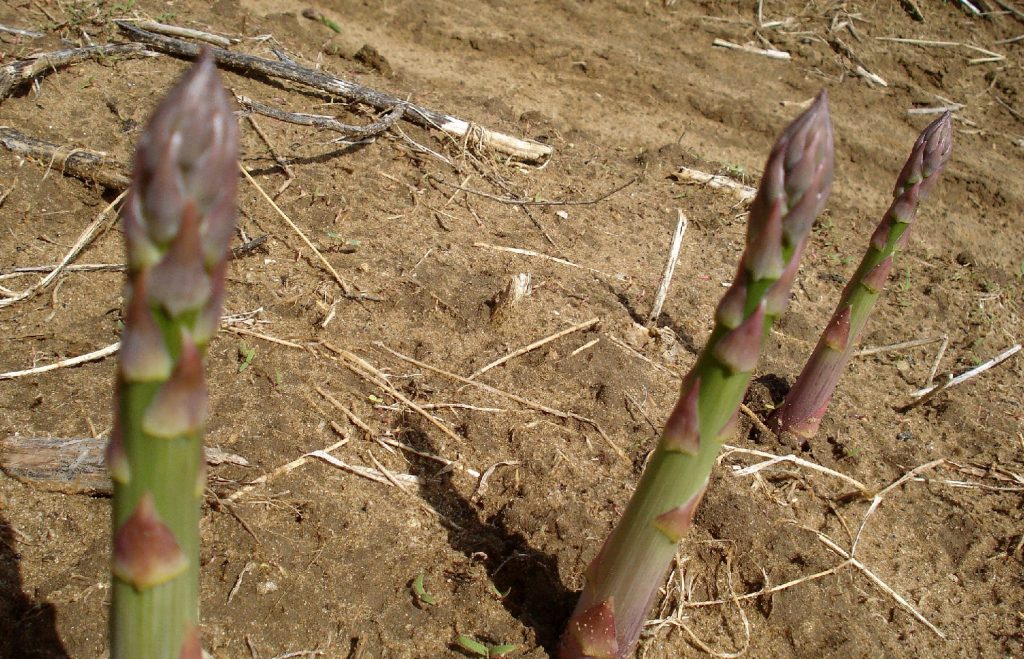
Is it worth growing chives with companion plants?
Yes – chives are easy to grow with few demands and provide natural pest control against invaders large and small. Working with herbs such as dill and lavender, you can build an even stronger line of defense to keep your crops growing strong and flavorsome in time for harvest. Unlike many herbs you can grow as companions in the garden, chives are rarely aggressive – but avoid planting them alongside slow growers such as asparagus.
